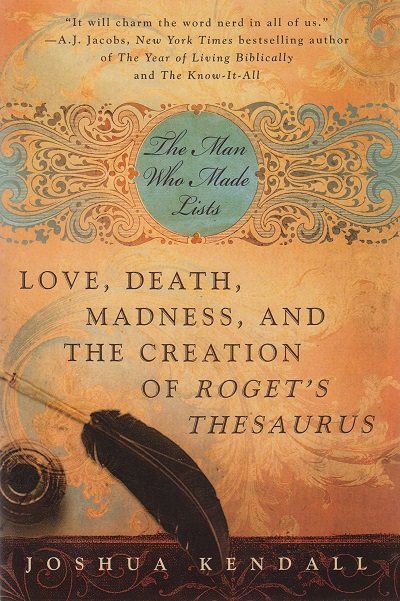
Edward Winter

As is well known, Peter Mark Roget, the creator of Roget’s Thesaurus, also came up with ‘The Economic Chess Board’. (See, for example, the ‘pocket set’ entry in the various editions of the Oxford Companion to Chess.) Now, though, Alan McGowan (Waterloo, Canada) points out that Roget was mentioned in The Chess Congress of 1862 by J. Löwenthal (London, 1864) in another connection. The book contains a selection of problems entered for a competition, and a list of ‘Ordinary Problems’ appears from page lxxviii to page lxxx. Number 14, on page lxxviii, is ‘Davus sum – Non Oedipus’, P.M. Roget, M.D. London.
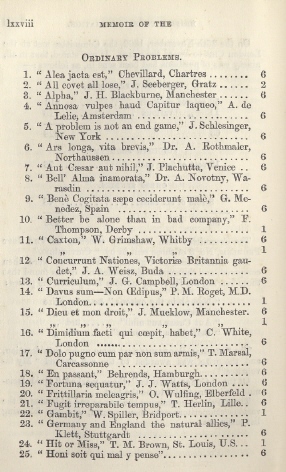
Mr McGowan comments:
‘The book shows that he submitted one problem. Most competitors sent in a set of six, although others submitted sets of three or, like Roget, just one problem. His composition did not win a prize. Between pages 383 and 425 a selection of “Ordinary Problems” by unsuccessful competitors is presented, but Roget’s is not there.’
What is known about Roget’s interest in chess problems or in chess in general?
(4283)
Michael McDowell (Westcliff-on-sea, England) remarks that J. Kling’s The Chess Euclid (London, 1849) included among the list of subscribers ‘Roget, Dr, 18 Upper Bedford Place’.
Our correspondent also forwards this problem by Roget, from page 617 of the Illustrated London News, 29 June 1861:
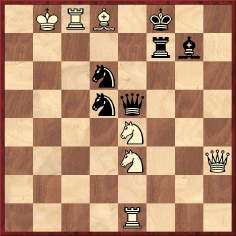
Mate in four.
(4288)

Eduardo Ramirez (Chicago, IL, USA) refers to The Man Who Made Lists by Joshua Kendall (New York, 2008), a biography subtitled ‘Love, Death, Madness, and the Creation of Roget’s Thesaurus’.
The Preface (page 1) describes Roget as ‘the eminent nineteenth-century polymath – physician, physiology expert, mathematician, inventor, writer, editor, and chess whiz’. Pages 203-206 relate Roget’s romance with Jane Griffin:
‘Here was a woman who, too, made a treasure chest of her ideas and had a penchant for classification. What’s more, Jane could play a mean game of chess. She had had a formidable instructor, Davies Giddy – later the president of the Royal Society during the beginning of Roget’s tenure as secretary – who never forgot her “wonderful quickness in learning chess”.’
Pages 174-175 state regarding Roget:
‘He even approached one of his favorite pastimes, chess, as if it were an academic discipline (decades later, he published the celebrated theoretical paper “Description of Moving the Knight over Every Square of a Chess-Board Without Going Twice over Any One” in a philosophical journal).’
Mr Ramirez comments that Roget’s paper was published in the London and Edinburgh Philosophical Magazine and Journal of Science, April 1840, that George Walker responded in the June 1840 issue, and that Roget was mentioned by D.W. Fiske on page 44 of the New York, 1857 tournament book.
We add that the Roget was referred to on page 11 of the Chess Player’s Chronicle, 1841:
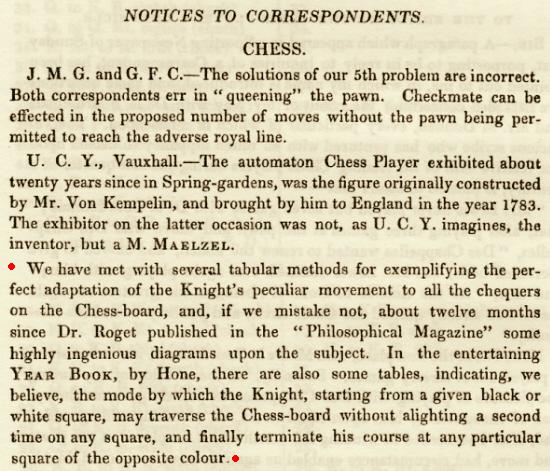
(8710)
Below are the full texts contributed by Roget and Walker to the London
and Edinburgh Philosophical Magazine and Journal of Science
(April 1840, pages 305-309, and June 1840, pages 498-501):
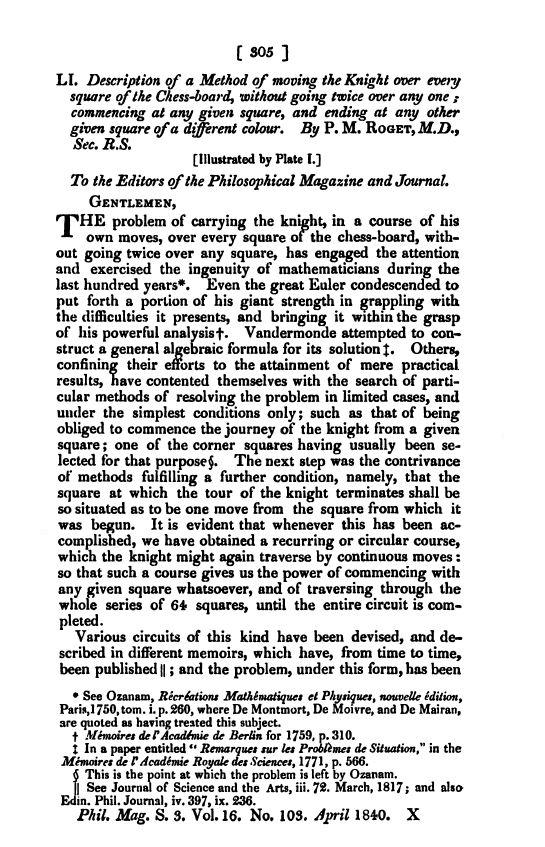
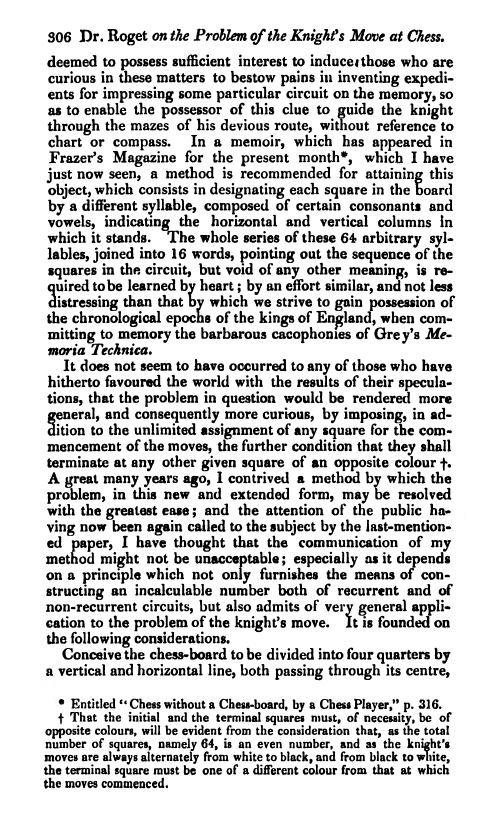
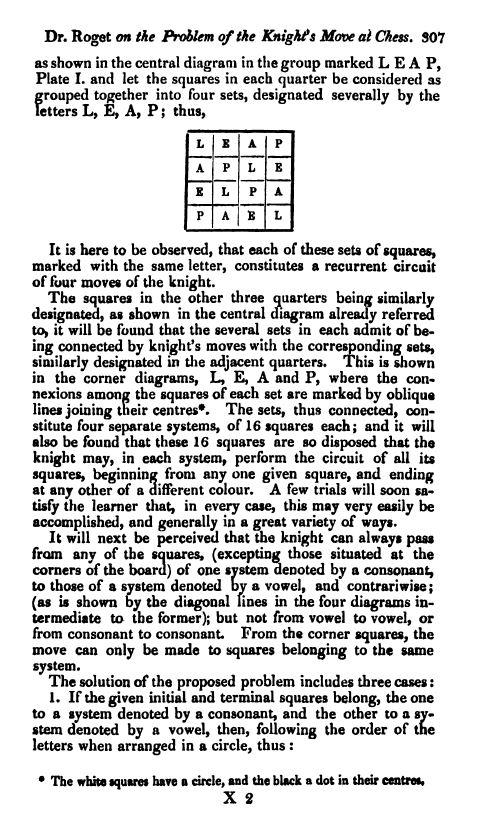
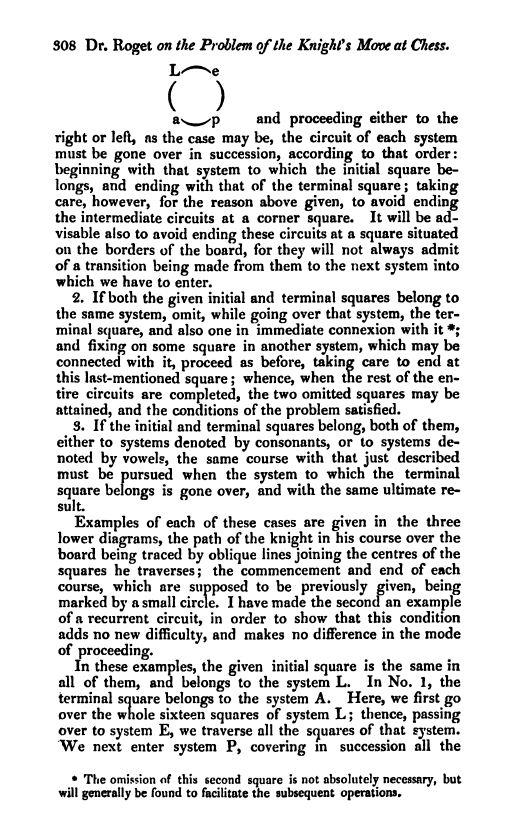
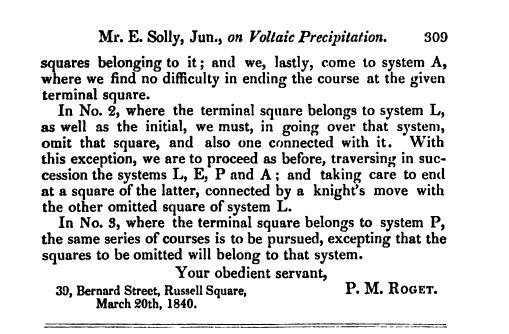
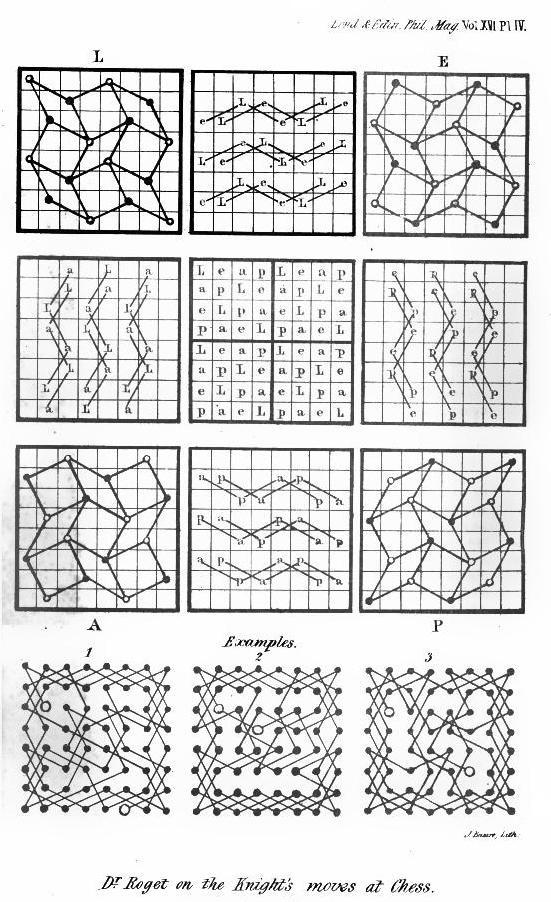
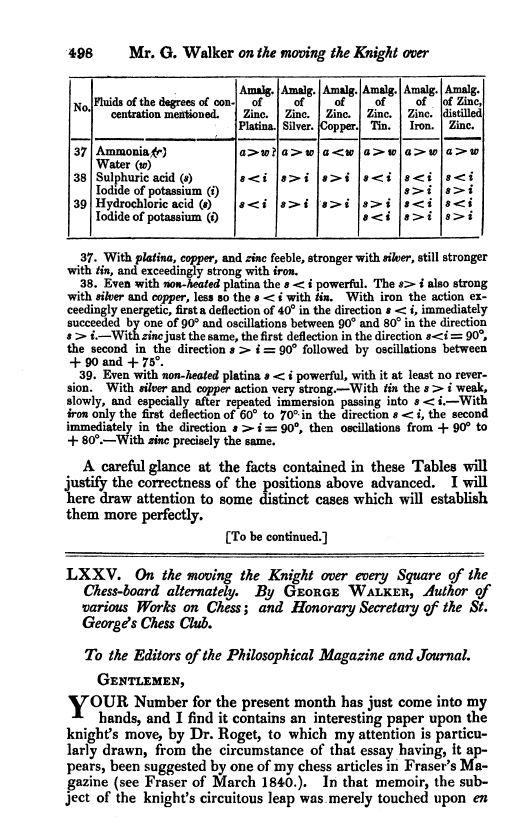
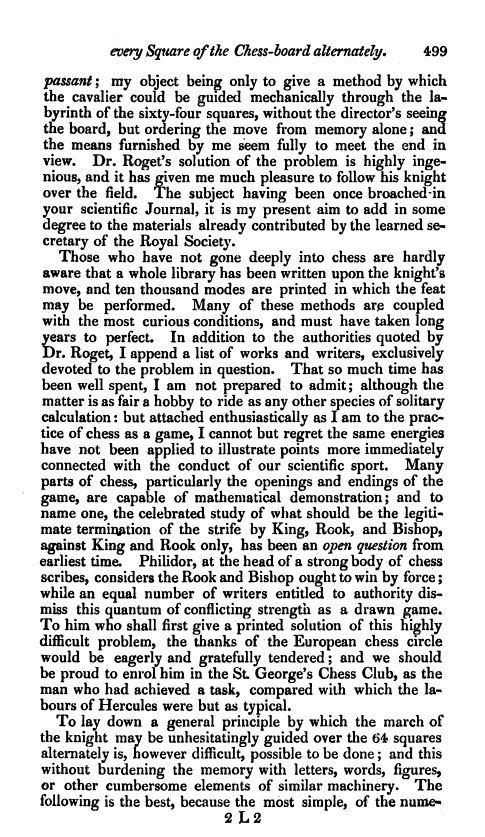
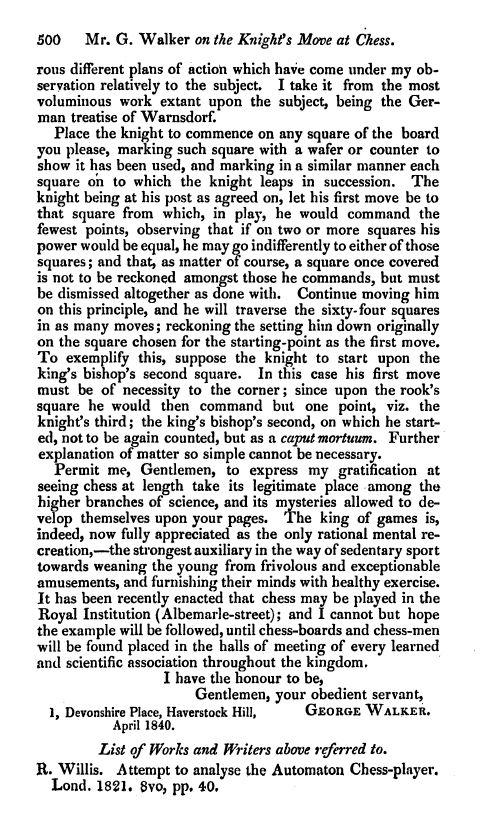
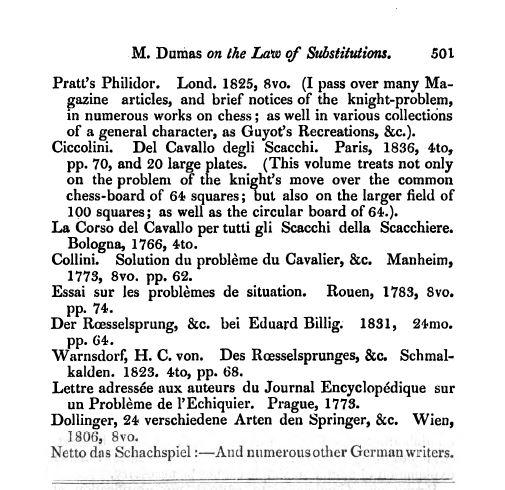
To the Chess Notes main page.
To the Archives for other feature articles.
Copyright: Edward Winter. All rights reserved.